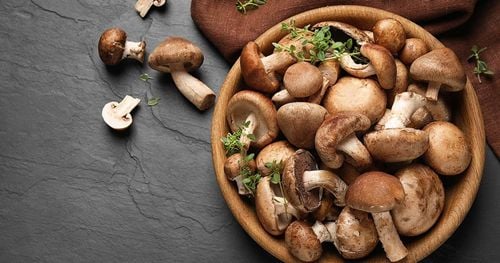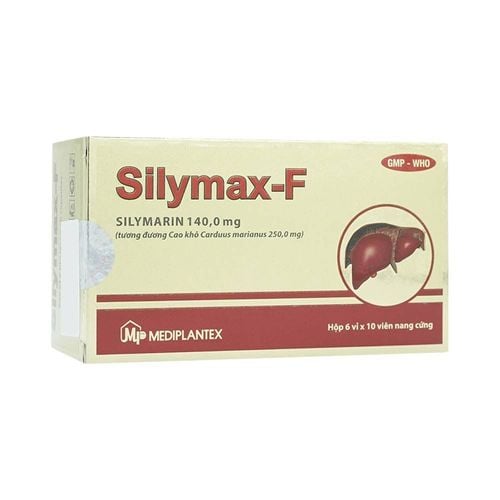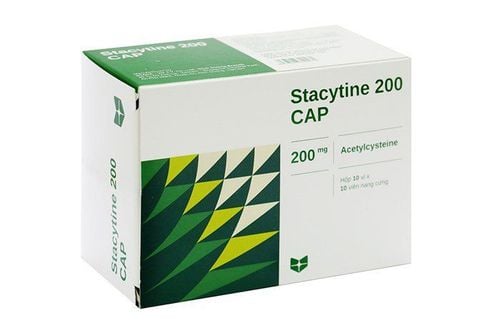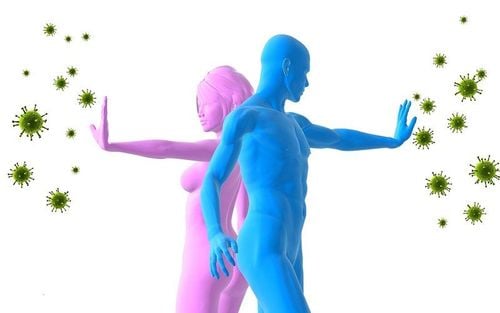This is an automatically translated article.
Herbal tea offers many health benefits such as preventing cancer, diabetes, cardiovascular disease, reducing anxiety, insomnia,... However, you should also be careful when choosing herbal teas. , time and dose, as some can cause side effects if used for a long time or taken in excessive amounts.
1. What is herbal tea? What is the difference from green tea?
Black, green, white, and oolong teas are all derived from the tea tree. Meanwhile, herbal teas are derived from various flowers, leaves or spices and are mostly caffeine-free. The ingredients are either fresh or dried, mixed with hot water or boiled for drinking.
2. What are the benefits of drinking herbal tea?
Each type of herbal tea has its own active ingredients, so the effects of each tea for the body are also different. In general, herbal tea has many outstanding health benefits including:
Against liver, cervical, colon, lymphatic or lung cancer,...; Reduce the risk of diabetes and its complications; Prevent the risk of neurodegenerative diseases such as Alzheimer's; Increases fat metabolism, reduces fat, has the ability to support weight loss; Protect liver, clear heat, detoxify; Improve the immune system; Reduce fever, relieve cough and sore throat; Sedative, stress relief.
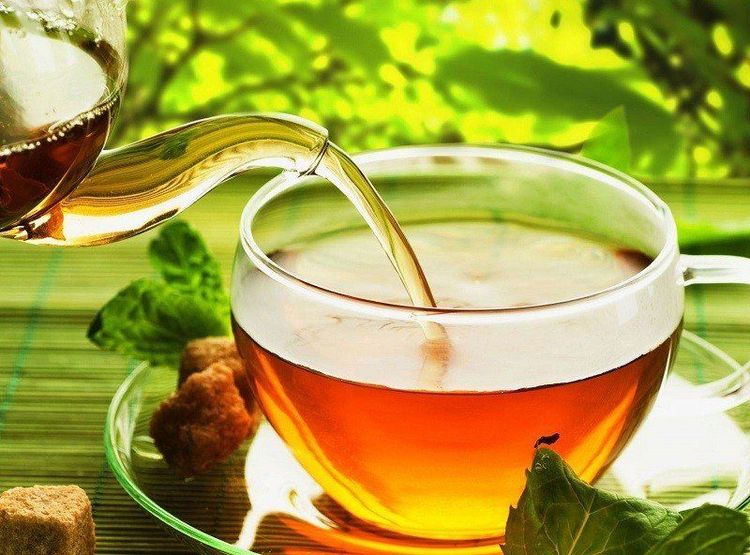
Trà thảo mộc có nhiều lợi ích nổi bật đối với sức khỏe
3. Is drinking herbal tea good?
Rooibos tea:
Rooibos tea, also known as red tea, is native to South Africa. The ingredient does not contain caffeine and is believed to have antioxidant effects. Based on scientific studies, this tea has immune-boosting and cancer-preventing effects. Cardiovascular and diabetes benefits are under review. You should consult your doctor before using rooibos tea if you have hormone-sensitive cancer or are undergoing chemotherapy. Chamomile Tea:
Has been used for centuries to soothe upset stomachs, bloating, diarrhea, insomnia, and anxiety. However, there are currently new studies demonstrating its anxiety-reducing effects, for other benefits that have not been specifically studied. Chamomile tea is contraindicated in people who are allergic to ragweed plants and are taking blood-thinning medications such as warfarin. Rosehip Tea: Rosehip tea is extracted from the bark of the rosehip seed, which is a great source of vitamin C with anti-inflammatory and antioxidant properties. Some even claim it helps ease the pain of arthritis, but more research is needed. Rosehip tea is relatively safe, with only a few cases of allergic reactions or stomach upset when drinking the tea. Peppermint tea:
Peppermint tea is often used in cases of upset stomach, headaches, irritable bowel syndrome and respiratory problems. Although it has been used medicinally for centuries, there is little research supporting its health benefits. This tea is safe, so you can try or simply enjoy the cool taste of mint. Ginger tea:
Mainly used in the treatment of stomach upset and nausea. In addition, you can also use it to increase appetite, relieve pain from arthritis or prevent colds. Some studies have found evidence of an anti-nausea effect, but other benefits are still to be explored. Ginger tea is considered safe, but if you are pregnant, you should consult your doctor before using it as a regular drink. Lemon Balm tea (Lemon Balm):
According to folk tradition, perilla tea has the effect of reducing anxiety, insomnia and there is some evidence to prove this. As for the memory-improving effect, more research is needed. This tea can cause nausea and stomach upset, so be careful when drinking too much or for a long time. Milk thistle and dandelion tea:
Milk thistle and dandelion tea are used for people with liver and bile diseases. Dandelion tea is not usually harmful to health, except for people who are allergic to plants with yellow flowers. Milk thistle tea has the main ingredient silymarin, which studies have shown to be effective in reducing the symptoms of hepatitis C.
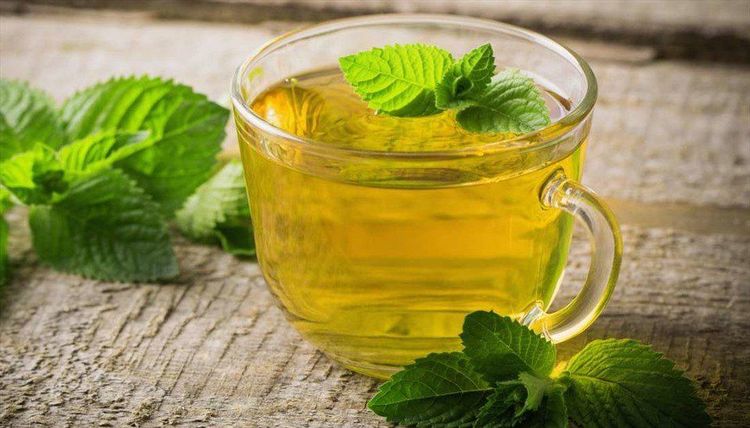
Trà thảo mộc ngăn ngừa ung thư, tiểu đường, bệnh tim mạch
Hibiscus Tea:
Hibiscus flower tea originated in ancient Egypt, from a red flower rich in antioxidants. Some studies have found it to lower blood pressure and cholesterol. This is a safe tea, you can drink it in moderation without harming your health. Echinacea tea:
Echinacea also known as coneflower, is a remedy used to treat colds thanks to its immune-boosting effects. However, there are currently not many studies proving its benefits. If you are pregnant, have allergies or asthma, or are on medication, you should not use this tea. Sage tea:
Used for centuries in the treatment of stomach problems, sore throats, depression and memory loss. However, research on the health benefits of this herb is still limited. Most types of sage tea are safe to consume, with the exception of a few that contain thujone, which can affect the nervous system. Passionflower tea:
Has the effect of alleviating anxiety and helping to treat insomnia. However, you should not drink this tea if you are pregnant as it can cause side effects such as drowsiness, dizziness and confusion. Passion fruit tea may also affect the action of certain medications, such as pentobarbital and benzodiazepines. Turmeric tea:
Used by some people to treat kidney stones and bloating, but there are currently no studies to support this. Animal studies have shown it to prevent cancer and reduce inflammation, but human studies are still needed to accurately assess its effects. If you are undergoing chemotherapy, you should not drink turmeric tea because it can interfere with the treatment process. Valerian tea:
Women use valerian tea to relieve symptoms of menopause, in addition, it is also used in the treatment of insomnia, anxiety or depression. Some studies have demonstrated the sedative effects of tea, however, should not be used for a long time or in combination with alcohol or sedatives, to avoid harm to health. Kava tea:
Kava is a plant in the pepper family, native to the South Pacific, commonly known as a tonic with proven anxiety-reducing effects. However, researchers have also discovered liver side effects such as yellowing or dry, scaly skin with long-term use. The FDA has issued a warning about the risks associated with using this tea and some countries are trying to remove it from the market.
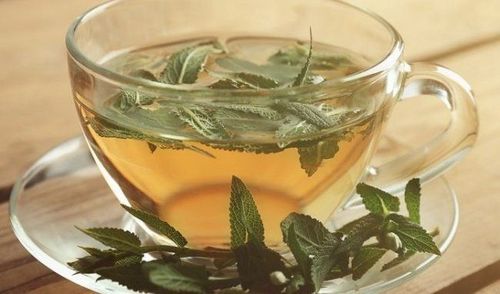
Trà thảo mộc xô thơm giúp điều trị các vấn đề về dạ dày, viêm họng, trầm cảm và mất trí nhớ
Please dial HOTLINE for more information or register for an appointment HERE. Download MyVinmec app to make appointments faster and to manage your bookings easily.
Reference source: webmd.com




